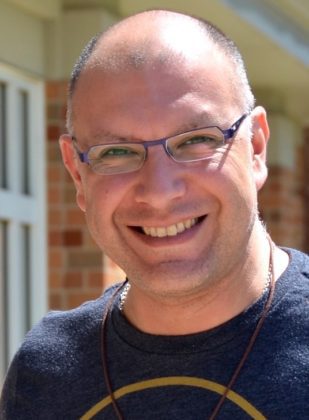
We invite Dehonians, co-workers and other collaborators in SCJ ministry to share their personal reflections regarding the impact of the coronavirus (COVID-19) in their lives and their communities. The following is from Br. Diego Diaz, SCJ, a member of the Mississippi community.
The global pandemic has changed our daily routine. Schedules, classes, meetings, everything changes day by day. Human beings seem to have become more vulnerable. We thought we were invincible.
Personally, I am learning new ways to interact with people through video calls, online classes and I even had to do a Eucharistic Adoration transmitted from the St. Michael community prayer room for a group of people who had asked me to lead them in prayer on Sunday afternoon. The virus moves with a speed that makes people have to learn faster and faster. At the same time, it is very simple, clear and concrete how we can take care of each other. Wash your hands, keep your social distance and if you are sick, stay home and rest.
For me, as a Latino, social distance is the most difficult. We are a culture where affection is expressed by shaking hands or with a hug, and social distance places us in a different place where we have to learn to take distance to take care of ourselves.
In my social service job at Sacred Heart Southern Missions, it is almost normal to greet people by shaking or hugging, but now we are limited to receiving a person’s order and delivering pantry items to the cars. Many of the people who come to us also seek prayer and advice for a situation. We have to find ways of attending to them while also following recommendations to prevent the spread of the virus.
In the community, we have also had to make some adjustments.
A few days ago I was reading about collective intelligence, that is, that intelligence that species possess and that allows them to make collective decisions to survive (some examples are found bees and ants). This pandemic is leading us to learn together, to stop and to be in solidarity with each other.
Without a doubt, when this ends we will have to be a new humanity, more fraternal, taking care of each other, being responsible for the care of the environment.
Let’s go back to the essential. We learn from our experiences; we must be responsible to take what we learned and be the engine of change wherever we are.
